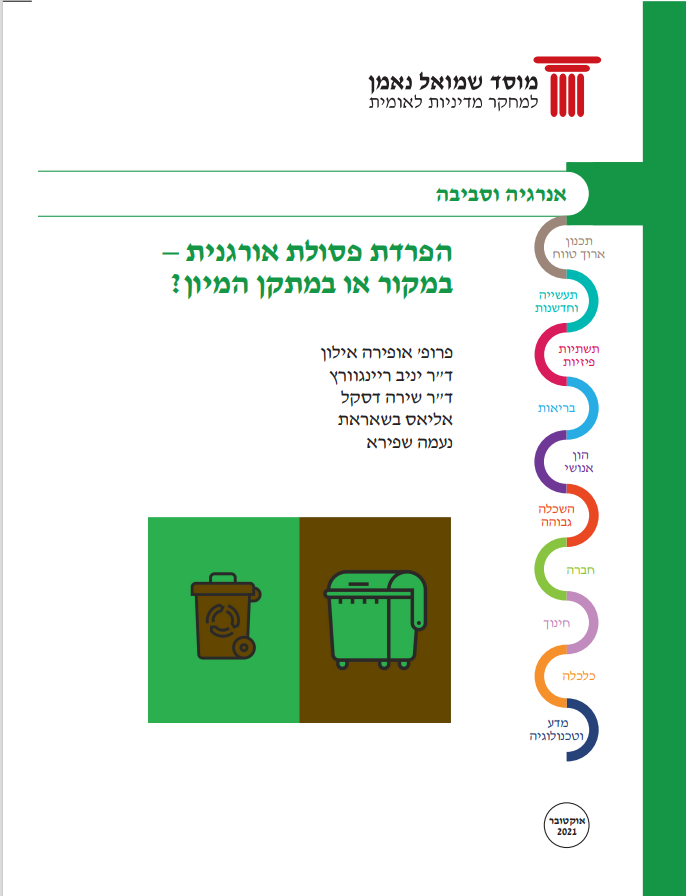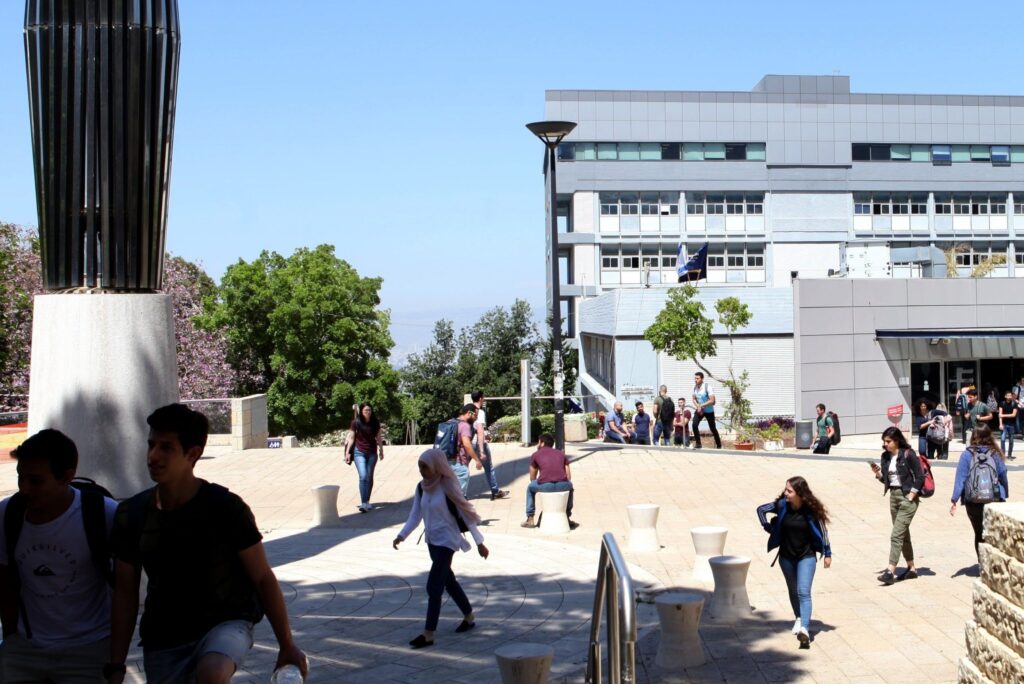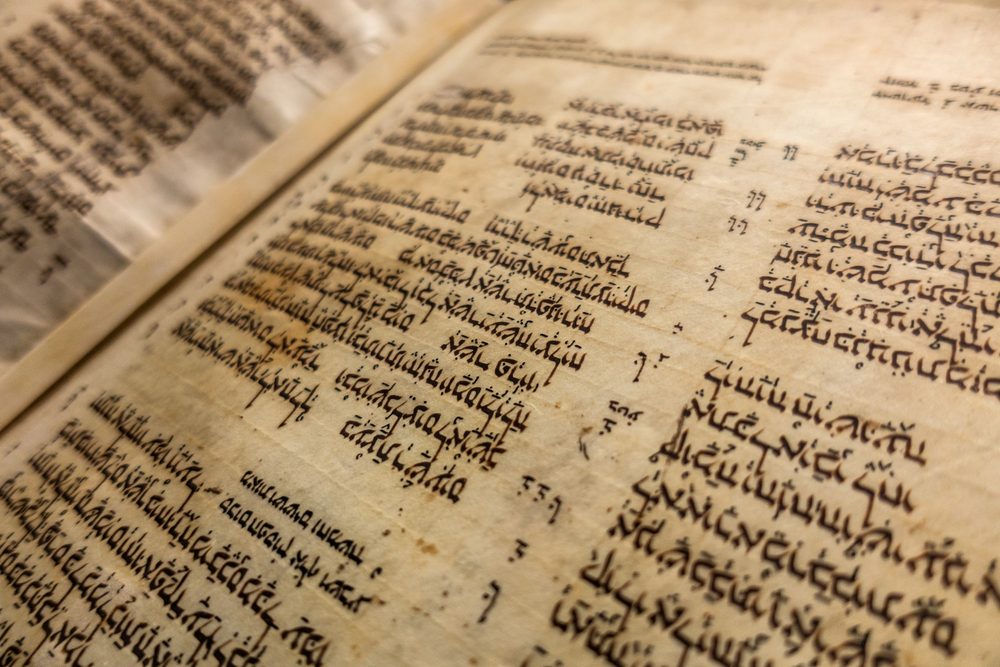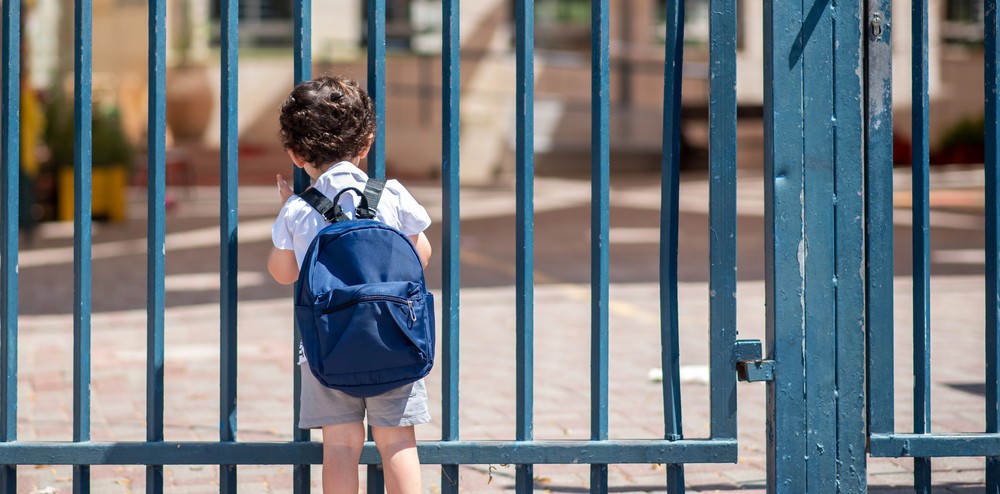The waste management in Israel is in a deep crisis – the legal framework and waste treatment infrastructure are lacking; recycling rates are low compared to OECD countries and the amount of waste produced per capita is growing every year. The waste management in Israel is in a deep crisis – the legal framework and waste treatment infrastructure are lacking; recycling rates are low compared to OECD countries and the amount of waste produced per capita is growing every year.
By the end of 2020, the Ministry of Environmental Protection released the new waste strategy for municipal solid waste (MSW) for the year 2030.
To map the barriers for implementing this strategy, we held an online forum on 26/05/2021 in which representatives from the various sectors participated – the central government, the local government, environmental organizations as well as consultants and academics who work in the field of waste in Israel.
The forum focused on the question if the separation of organic waste should be at the source or in central facilities. The focus on the organic fraction is since this fraction is comprised almost half of the weight of MSW in Israel, and it is one of the waste streams with the most significant environmental impact (leachates, greenhouse gas emissions, and more). Today, most organic waste is transferred to landfill, but there is a broad professional consensus that it is desirable to separate this stream from the rest of the waste streams and treat it with one of the existing methods (composting, anaerobic digestion). However, there is no professional agreement between all the players in the field regarding the separation method – whether it is desirable to separate the organic waste at the source, or at a sorting facility.
Several key principles can be outlined for the issue of the treatment of organic waste, even though in some of the issues there was no consensus among the participants.
- The set of operations and the relationship between the central and local government:
- The regulator should define the vision and objectives for waste management and let the local authorities (or authorities clusters) define the means of implementation according to the various challenges and their unique geographical and demographic characteristics.
- Need to build a professional and in-depth dialogue of the regulator with local government, reach agreements, and build a common strategy.
- Recommended application order:
- It is advisable to start source separation in the business sector – food business, tourism, military bases – where the waste is rather clean, concentrated, and where the move is simpler, and only then address the issue of households.
- Construction and full operation of waste treatment facilities are crucial.
- Creating success stories from the business sector. It is recommended to start small, learn, and then continue to households.
- Public trust must be restored by providing transparent, genuine, and available information regarding the waste treatment chain, as well as considering that the process of re-harnessing the public will take many years.
- Objective accompaniment of the application and future development:
- As there are still issues for which there are large knowledge gaps, it is recommended to allocate funding for studies that will accompany the application process and include data collection and analysis.
- In addition, it is necessary to study in-depth the potential use of the products of the waste treatment process in Israel, taking into account prices of virgin material, the feasibility of implementing economic incentives, and allocate budgets for developing innovation in the “world” of organic waste.












